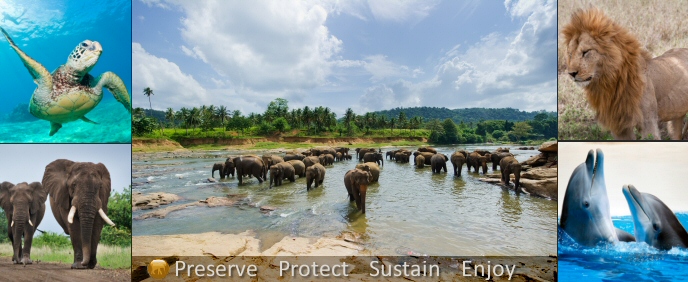
Ocean and Marine Life Protection Acts and Treaties
Convention on Fishing and Conservation of Living Resources of the High Seas
Conservation issues that arise in international waters have proven to be quite difficult to resolve in the past. This was largely due to the very different approaches to the exploitation of marine resources from country to country, and this led to a fairly large issue. After all, the high seas have no borders, meaning that the issues that arise due to overfishing have no borders as well. Since the entire world could suffer from the unscrupulous actions of a single rogue fishing industry, it became necessary for countries to work together toward a unified front on sustainable fishing. The purpose of this initiative is to help create a framework through which international conservation laws can be enforced on the high seas. It accomplishes this goal by engendering international cooperation toward mutually beneficial conservation goals. With the advent of newer fishing technologies that create immense strain on the ocean, this initiative has become even more important for marine conservation. For ecotourists, this generally means that they have to make sure that they're dealing with a respectable fishing guide if they plan on heading out with their bait and tackle. It also means that they are more likely to enjoy the biodiversity protected by this initiative.
Marine Mammal Protection Act
This legislation was introduced in 1972 to prohibit the import, export, sale, and hunting of marine mammals within the jurisdiction of the United States. The MMPA creates a structure through which complaints may be filed, and through which the protection act can enforce its prohibitions. The MMPA also allows the government to create regulations that that help to further the legislative goals of the act. What this means for people on ecotourism holidays is that they need to keep their distance from marine mammals. This is due to a provision in the act which classifies "taking" a marine mammal as "hunting, killing, capture, and/or harassment of any marine mammal; or, the attempt at such." Being caught harassing wildlife can be met with a set of stiff penalties.
Marine Protection, Research, and Sanctuaries Act of 1972
Also known as the "Ocean Dumping Act" of 1972, the Marine Protection, Research, and Sanctuaries Act allows the EPA to regulate the dumping activities of industrial and municipal wastes into the oceans or other territorial waters of the United States. The act was created in opposition to what had been a long history of unregulated dumping. This dumping was being done by businesses and government bodies, and had been turning the waters around the US into a marine garbage dump. The regulations enacted by the MPRSA are directed to "prevent or strictly limit the dumping into ocean waters of any material that would adversely affect human health, welfare, or amenities, or the marine environment, ecosystems, or economic potentialities." This means that not only have dumping operations been brought under control, but there are now mechanisms in place to warn tourists of dangerous metal toxicities that would be left over from a time before the act. For ecotourists, this means that the oceans are now much safer to swim, snorkel, dive, and fish in than they once were.
United Nations Convention on the Law of the Sea
Perhaps one of the most important maritime environmental treaties that has ever been signed into practice, the United Nations Convention on the Law of the Sea makes clear the responsibilities and rights of all nations that use the oceans. By creating a set of regulations for the conduct of business within the scope of the world's oceans, the Law of the Sea works to protect the health and resources of the oceans from rampant overuse. Among other things, the Law of the Sea codifies-- to an extent-- the national and international water boundaries, as well as the exclusive economic zones of all countries that touch the oceans. This is important to understand for tourists that plan on venturing out to smaller, less developed countries. Due to the sometimes difficult nature of distinguishing if you've crossed into the zone of another country, tourists may sometimes find themselves at odds with local customs authorities at sea. This is very rare, but is something to keep in mind.
